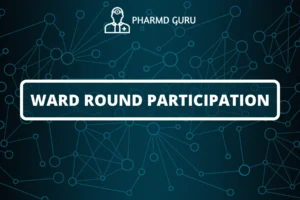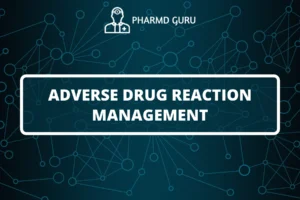Accurate and comprehensive medication history is a vital component of patient care. It provides healthcare professionals with crucial information about a patient’s current and past medication use, enabling safe and effective treatment planning and management. In this article, we will explore the importance of medication history, its role in healthcare, and the significance of clinical pharmacists in obtaining and reviewing medication histories.
SCROLL DOWN TO THE BOTTOM OF THE PAGE FOR ACTUAL NOTES
TABLE OF CONTENTS:
- Introduction
- What is Medication History?
- Importance of Medication History
- Gathering Medication History
- The Role of Clinical Pharmacists
- Medication Reconciliation
- Benefits of Accurate Medication History
- Enhancing Patient Safety
- Collaboration and Communication
1. Introduction
Medication history refers to a comprehensive record of a patient’s medication use, including prescription medications, over-the-counter drugs, herbal supplements, and vitamins. It serves as a foundation for effective healthcare decision-making, medication reconciliation, and ensuring patient safety.
2. What is Medication History?
Medication history encompasses information about current medications, previous medications, dosages, frequency of use, duration of treatment, and any medication-related allergies or adverse reactions. It provides a detailed overview of a patient’s medication journey and helps healthcare professionals make informed decisions.
3. Importance of Medication History
Obtaining an accurate medication history is crucial for several reasons. It helps healthcare professionals:
- Identify potential drug interactions: Medication history enables healthcare professionals to identify possible interactions between medications, minimizing the risk of adverse effects.
- Assess medication adherence: A thorough medication history helps evaluate a patient’s adherence to prescribed medications, which is essential for treatment efficacy.
- Avoid duplication or omissions: By reviewing medication history, healthcare professionals can prevent duplicate prescriptions or the omission of necessary medications.
- Identify medication-related problems: Medication history can highlight patterns of medication-related issues, such as ineffective treatment or adverse drug reactions, leading to appropriate interventions.
4. Gathering Medication History
Accurate medication history is obtained through a comprehensive patient interview. Healthcare professionals, including clinical pharmacists, gather information about the patient’s current medications, previous treatments, and any over-the-counter or complementary therapies. It is crucial to involve the patient actively and encourage open communication during this process.
5. The Role of Clinical Pharmacists
Clinical pharmacists play a significant role in obtaining and reviewing medication histories. They have expertise in pharmacotherapy and medication management, allowing them to assess the appropriateness of prescribed medications, identify potential medication-related problems, and provide recommendations for optimization.
6. Medication Reconciliation
Medication reconciliation is a crucial step in the medication history process. It involves comparing the patient’s medication history across different healthcare settings to ensure accuracy and continuity of care. Clinical pharmacists collaborate with healthcare teams to reconcile medication lists, resolve discrepancies, and develop a unified medication regimen.
7. Benefits of Accurate Medication History
Obtaining and maintaining an accurate medication history offers numerous benefits, including:
- Enhanced patient safety: Accurate medication history reduces the risk of medication errors, adverse drug events, and potential harm to patients.
- Improved treatment outcomes: With a comprehensive understanding of a patient’s medication history, healthcare professionals can tailor treatment plans, optimize medication selection, and improve treatment efficacy.
- Cost-effectiveness: Accurate medication history helps avoid unnecessary duplications and costly interventions, promoting efficient use of healthcare resources.
- Continuity of care: A complete medication history ensures seamless transitions between healthcare providers and settings, promoting continuity and quality of care.
8. Enhancing Patient Safety
Medication history plays a critical role in enhancing patient safety. It helps healthcare professionals identify potential drug interactions, allergies, contraindications, and medication-related risks. This knowledge enables them to make informed decisions, minimize adverse events, and ensure personalized and safe treatment.
9. Collaboration and Communication
Effective collaboration and communication are vital in obtaining and utilizing medication history. Clinical pharmacists work closely with patients, healthcare providers, and other members of the healthcare team to gather accurate information, resolve discrepancies, and ensure appropriate medication management.
ACTUAL NOTES




